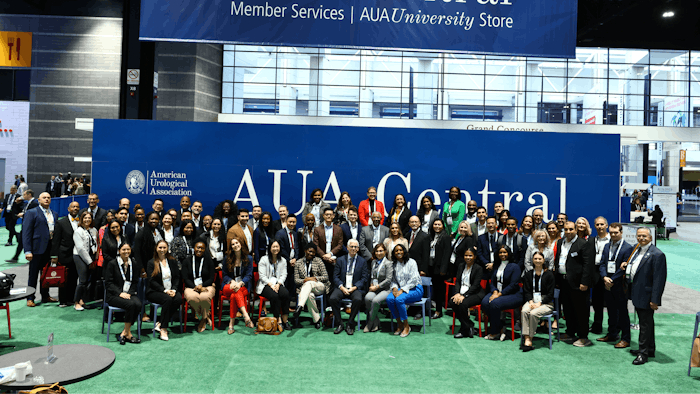Back to the FUTURE
This mentorship program aims to increase representation in urology and foster equitable health care.

Diversity in nature is a key building block for strong ecosystems in which entities come together from different areas to strengthen one another. The same is true for ecosystems in medicine, including urology. Studies have demonstrated that a diverse physician workforce results in improved health outcomes and satisfaction for patients.
 Larissa Bresler, MD, DABMA
Larissa Bresler, MD, DABMA
Larissa Bresler, MD, DABMA, professor of urology, obstetrics and gynecology at Loyola University Medical Center’s Stritch School of Medicine and Hines VA Hospital in Illinois, and chief diversity officer of the AUA, said those tools include effective mentorship, networking and skills development.
“We are bridging the gap between aspiring urologists and experienced professionals, and fostering a vibrant ecosystem of learning, collaboration and growth,” she said.
The program will be showcased on Friday, May 3, with attendees enjoying networking and mentoring opportunities, exposure to research and clinical practice in urology, mentorship from an experienced practicing urologist and more. Although the in-person event is geared toward medical students, Dr. Bresler, who is also chair of the AUA Diversity, Equity and Inclusion Committee, said the FUTURE virtual platform is open to all AUA members who wish to join as well.
“We welcome urologists to join as mentors (either virtually or in person) and/or mentees,” she said. “For instance, I currently serve as a mentor for our young and aspiring urologists, but as the program expands, I’ll also seek mentorship for my own professional growth.”
That mentorship plays a key role in fostering AUA pipeline efforts, Dr. Bresler explained. It does this in four ways:
- Equipping URiM and URiU students with tools to achieve their career aspirations, including effective mentorship, networking and skills development.
- Exposing students to a holistic urology experience each year at AUA’s Advocacy Summit and Annual Meeting.
- Providing a centralized resource library for mentees and mentors related to careers in urology to foster coordination, data exchange and collaboration across established pipeline and mentorship programs.
- Applying for various industry grant programs to support the missions and growth of nonprofit urology pipeline programs across the United States by creating a funding mechanism for these organizations. Once funds are secured, the recipients will be awarded grants based on defined criteria and will be required to report on their program results.
“The FUTURE in Urology program is leveraging technology and the collaborative spirit of our colleagues to attract students to urology, cultivate leadership opportunities and support our diverse and vibrant urological community,” Dr. Bresler said.
During Friday’s event, 66 mentees will be paired with physician mentors from across all urological specialties. They will spend the day with their mentors to learn more about the practice of urology, specific urological subspecialties and the various research and educational offerings of the AUA annual meeting. The students will also have the opportunity to attend the inaugural DEI forum, the Urology Care Foundation benefit event, the AUA Research Reception and various subspecialty meetings.